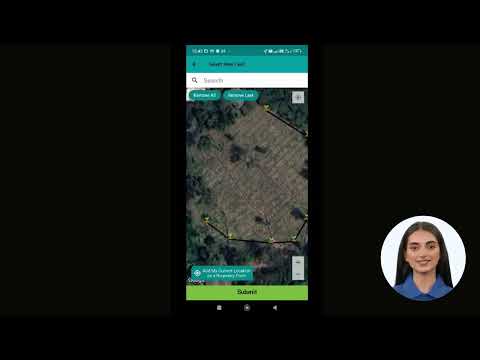Essential Winter Guide: Protect Your Nashville Home from Freezing Pipes and Icy Driveways

As winter descends upon Nashville, homeowners and farmers alike face unique challenges in protecting their properties and crops from the harsh cold. At Farmonaut, we understand the importance of safeguarding your investments, whether it’s your cozy home in Donelson or your thriving orchard in Rutherford County. That’s why we’ve compiled this comprehensive guide to help you navigate the frosty months ahead, combining essential tips for home maintenance with cutting-edge strategies for winter crop protection.
“Smart irrigation systems can reduce frost damage by up to 30% in orchards during winter freezes.”
In this blog post, we’ll explore everything from preventing frozen pipes in your Nashville home to implementing advanced agricultural frost prevention techniques in your fields. We’ll delve into the world of cold weather farming techniques, temperature monitoring in agriculture, and innovative crop insulation methods that can make all the difference when the mercury drops.
Whether you’re a homeowner in Murfreesboro worried about icy sidewalks or a farmer in Dyersburg looking to protect your winter crops, this guide has something for everyone. So, grab a warm drink, settle in, and let’s explore how to keep your property safe and your crops thriving this winter season.
Protecting Your Nashville Home from Winter’s Wrath
Before we dive into the intricacies of winter crop protection, let’s address some crucial steps to safeguard your home. After all, a warm, dry home is the perfect sanctuary from which to manage your winter farm operations.
1. Tackling Icy Driveways and Sidewalks
- Pre-emptive Action: Apply ice melt before snowfall or freezing rain to prevent ice formation.
- Post-Storm Treatment: Reapply ice melt after clearing snow to address any remaining slick spots.
- Safety First: Keep shovels and ice melt easily accessible for quick response to winter weather.
Remember, a clear driveway isn’t just about convenience; it’s about safety for you, your family, and any visitors to your Nashville home.
2. Protecting Outdoor Spigots
- Insulated Faucet Covers: Invest in Styrofoam covers encased in durable plastic to shield outdoor fixtures.
- Drain Hoses: Remove and store garden hoses to prevent water from freezing inside the spigot.
- Shut Off Valves: If possible, turn off the water supply to outdoor faucets from inside your home.
These simple steps can save you from the headache of burst pipes and costly repairs come spring.
3. Preventing Interior Pipe Freezing
- Pipe Insulation: Wrap exposed pipes, especially those near exterior walls, with foam insulation sleeves.
- Open Cabinets: Allow warm air to circulate around pipes by keeping kitchen and bathroom cabinet doors open.
- Constant Heat: Maintain a consistent temperature in your home, even when you’re away, to prevent pipes from freezing.
By implementing these measures, you’ll significantly reduce the risk of a plumbing disaster in your Nashville home.
Winter Crop Protection Strategies for Nashville Farmers
Now that we’ve covered home protection, let’s shift our focus to the fields. As temperatures drop, Nashville’s agricultural community faces unique challenges in maintaining crop health and ensuring a bountiful harvest. At Farmonaut, we’re committed to providing innovative solutions for winter farm management.
“Implementing frost-resistant crop varieties can increase winter harvest yields by 15-20% in cold regions.”
Smart Irrigation for Frost Control
One of the most effective methods for preventing crop freeze damage is the strategic use of irrigation. Here’s how it works:
- Timing is Everything: Start watering when temperatures approach freezing, typically around 34°F (1°C).
- Continuous Application: Keep water flowing until temperatures rise above freezing and all ice has melted.
- How it Works: As water freezes, it releases heat, creating a protective barrier around the plant.
By leveraging Farmonaut’s real-time temperature monitoring, farmers can precisely time their irrigation efforts for maximum protection.
Innovative Crop Insulation Methods
Physical barriers can provide crucial protection for sensitive crops. Consider these options:
- Row Covers: Lightweight fabrics that trap heat while allowing light and water to penetrate.
- Mulching: Apply organic materials around the base of plants to insulate roots and retain soil warmth.
- High Tunnels: Unheated greenhouses that extend the growing season and protect crops from harsh elements.
These methods are particularly effective for protecting orchards from freezing and safeguarding delicate vegetable crops.
Temperature Monitoring in Agriculture
Accurate and timely temperature data is crucial for effective winter farm management. Farmonaut’s advanced satellite-based monitoring system provides:
- Real-Time Alerts: Get notified when temperatures approach critical thresholds.
- Microclimate Mapping: Identify cold spots in your fields for targeted protection.
- Historical Data Analysis: Plan for future seasons based on past temperature trends.
By integrating these technologies, Nashville farmers can make informed decisions to protect their crops from freezing conditions.
Frost-Resistant Crop Varieties for Nashville’s Climate
Selecting the right crop varieties is a fundamental aspect of successful winter farming. Here are some frost-resistant options well-suited to Nashville’s climate:
- Winter Wheat: A hardy grain that can withstand temperatures as low as 0°F (-18°C).
- Kale and Collards: Leafy greens that actually improve in flavor after light frosts.
- Winter Barley: Another resilient grain crop that thrives in cooler temperatures.
- Carrots and Parsnips: Root vegetables that can remain in the ground throughout winter, protected by a layer of mulch.
By incorporating these frost-resistant varieties into your crop rotation, you can maintain productivity even during the coldest months.
Advanced Agricultural Frost Prevention Techniques
For those looking to take their winter crop protection to the next level, consider these advanced strategies:
- Wind Machines: Large fans that circulate warmer air from above to prevent frost formation.
- Fogging Systems: Create a protective barrier of mist that insulates crops from freezing temperatures.
- Soil Heating Cables: Electric cables buried in the soil to maintain optimal root temperatures.
While these methods may require a larger initial investment, they can pay dividends in crop yield and quality over time.
| Protection Method | Suitable Crops | Effectiveness | Implementation Difficulty |
|---|---|---|---|
| Smart Irrigation | Fruit trees, berries, vegetables | ⭐⭐⭐⭐ | Medium |
| Crop Insulation | Low-growing vegetables, young plants | ⭐⭐⭐⭐⭐ | Low |
| Frost-Resistant Varieties | Grains, leafy greens, root vegetables | ⭐⭐⭐⭐ | Low |
| Temperature Monitoring Systems | All crops | ⭐⭐⭐⭐⭐ | Medium |

Integrating Farmonaut’s Technology for Optimal Winter Farm Management
At Farmonaut, we’re dedicated to making precision agriculture accessible to farmers of all scales. Our satellite-based farm management solutions offer powerful tools for navigating the challenges of winter farming:
- Real-Time Crop Health Monitoring: Track vegetation health indices (NDVI) to detect stress caused by cold temperatures.
- AI-Powered Advisory: Receive personalized recommendations for crop protection based on your specific field conditions.
- Weather Forecasting: Access accurate, localized weather predictions to plan your frost protection strategies.
By leveraging these technologies, Nashville farmers can make data-driven decisions to protect their crops and optimize their winter farming practices.
Community Resources for Winter Preparedness in Nashville
Winter preparedness extends beyond individual homes and farms. Nashville’s community offers various resources to help residents navigate the cold months:
- Nashville OEM: The Office of Emergency Management provides updates on severe weather and emergency resources.
- Metro Nashville Public Works: Offers information on road conditions and snow removal efforts.
- Nashville Farmers’ Market: A hub for local farmers to share winter growing tips and sell cold-weather produce.
- Tennessee State University Extension: Provides educational resources on winter crop management and home gardening.
By staying connected with these community resources, Nashville residents can enhance their winter preparedness efforts.
Embracing Sustainable Winter Farming Practices
As we navigate the challenges of winter farming, it’s crucial to consider the long-term sustainability of our practices. Farmonaut is committed to promoting environmentally friendly farming methods that protect both crops and the planet:
- Cover Cropping: Plant winter-hardy cover crops to prevent soil erosion and improve soil health.
- Reduced Tillage: Minimize soil disturbance to retain moisture and organic matter.
- Efficient Resource Use: Utilize Farmonaut’s precision agriculture tools to optimize water and input usage.
By implementing these sustainable practices, Nashville farmers can protect their crops while preserving the land for future generations.
Frequently Asked Questions
Q: How often should I check my pipes during freezing weather?
A: It’s recommended to check your pipes daily during freezing temperatures, paying special attention to exposed pipes in unheated areas of your home.
Q: What temperature should I set my thermostat to prevent pipes from freezing?
A: Keep your thermostat set to at least 55°F (13°C), even when you’re away from home, to prevent pipes from freezing.
Q: How can I protect my garden plants from frost?
A: Cover plants with frost cloth or blankets before nightfall, ensuring the covering extends to the ground. Remove covers during the day to allow sunlight and air circulation.
Q: What crops can I grow in Nashville during winter?
A: Cold-hardy crops like kale, collards, carrots, and certain varieties of lettuce can thrive in Nashville’s winter climate with proper protection.
Q: How can Farmonaut help me manage my farm during winter?
A: Farmonaut provides real-time satellite imagery, weather forecasts, and AI-powered recommendations to help you monitor crop health, predict frost risks, and make informed decisions about winter crop protection.
Conclusion: Thriving Through Nashville’s Winter
As we’ve explored in this comprehensive guide, protecting your Nashville home and farm from winter’s chill requires a multifaceted approach. From safeguarding your pipes and clearing icy driveways to implementing advanced crop protection strategies, there are numerous steps you can take to ensure a safe and productive winter season.
Remember, prevention is key. By taking proactive measures and staying informed about weather conditions, you can minimize the risk of damage to your property and crops. Utilize community resources, embrace sustainable practices, and leverage innovative technologies like those offered by Farmonaut to navigate the challenges of winter with confidence.
Whether you’re a homeowner in Donelson, a farmer in Rutherford County, or anywhere in between, this winter guide equips you with the knowledge and strategies to protect your investments and thrive during the cold months. Stay warm, stay safe, and here’s to a successful winter season in Nashville!
For more information on how Farmonaut can support your winter farming efforts, visit our web app or download our mobile apps for Android and iOS. Together, we can cultivate success, even in the coldest of seasons.







